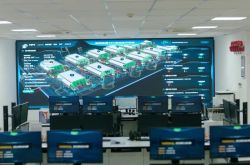"Embrace the AI Era and Win-Win the Future of the Storage Industry! The Third GMIF2024 Innovation Summit Was Successfully Held in Shenzhen"
![]() 09/28 2024
09/28 2024
![]() 589
589
In the golden autumn in Shenzhen, we gathered for a grand event. On September 27th, hosted by the Semiconductor Investment Alliance and the Shenzhen Memory Industry Association, with the collaboration of the Guangdong IC Industry Association and the Shenzhen Semiconductor Industry Association, and sponsored by Aijiwei Consulting (Xiamen) Co., Ltd. and Haitong Securities Co., Ltd., the 'Third GMIF2024 Innovation Summit (Global Memory Innovation Forum)' was grandly held in Shenzhen. Themed as 'AI-Driven Storage Recovery,' the summit brought together mainstream terminal manufacturers, module manufacturers, packaging and testing manufacturers, equipment and materials manufacturers, and other leading enterprises in various subdivisions of the storage industry chain, as well as representatives from investment institutions, to jointly discuss hot topics such as industry product innovation, technological evolution, and collaborative development of the industrial chain, actively promoting the collaborative development of the industry and sharing a win-win future.
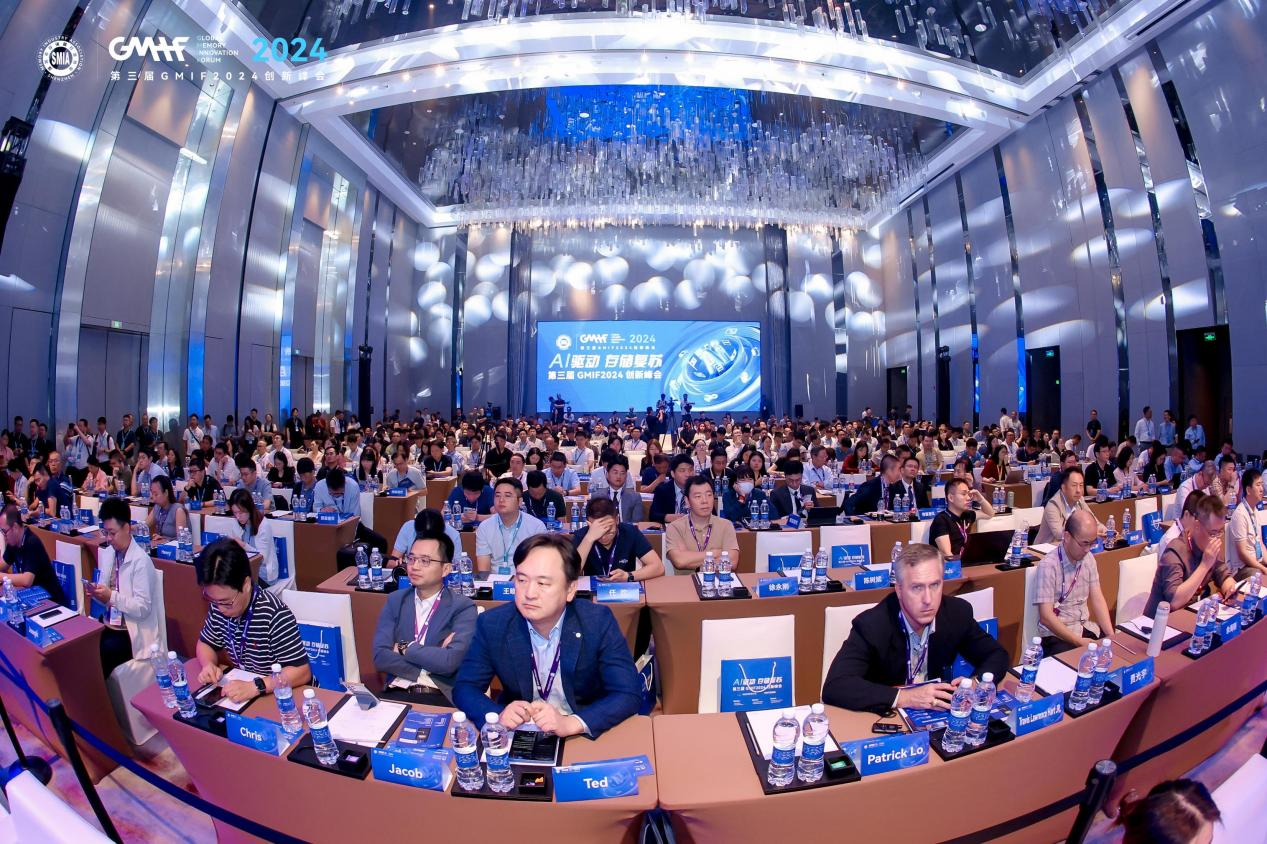
AI Applications Accelerate Deployment, Opening Up Incremental Space for the Storage Industry
Currently, the explosive development of AI is redefining the global semiconductor industry landscape. The widespread application of AI has driven demand for high-performance, high-computing chips and created significant growth opportunities for high-bandwidth, high-capacity, and low-power storage chips.
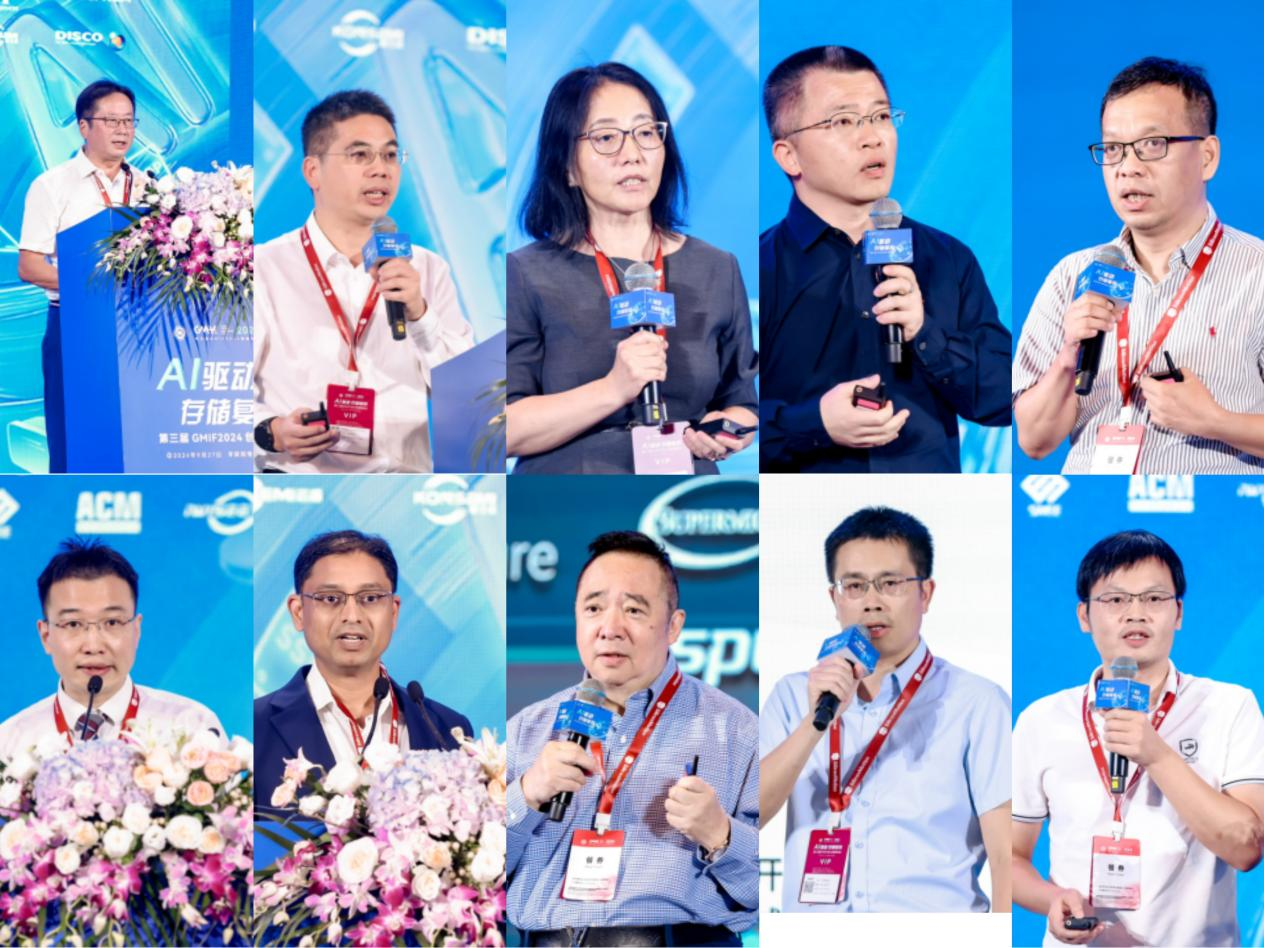
At the beginning of the summit, Sun Rixin, President of the Shenzhen Memory Industry Association, delivered a speech stating that in recent years, with the rapid development of technologies such as artificial intelligence, 5G, big data, and the Internet, the global storage industry is entering a new period of transformation. President Sun emphasized that the purpose of the GMIF Innovation Summit is not only to focus on memory itself but also to pay attention to the entire upstream and downstream value chain of memory, covering key areas such as storage media, solutions, system platforms, and testing equipment. We firmly believe that only through collaborative cooperation across the entire industry chain can we continuously promote industry progress and maintain a leading position in global competition.
Zhang Xiaofei, Chief Electronics Analyst at Haitong Securities, stated that from the current memory market perspective, HBM3e is impacting DDR5 production schedules, limiting DRAM price declines. On the NAND side, server terminal inventory adjustments are nearing completion, coupled with AI driving demand for high-capacity storage products, leading to continuous price increases in Q2. Recently, the upward trend in NAND prices has narrowed but remains better than market concerns. Looking ahead, the penetration of AI terminal applications is accelerating, with sustained growth in computing and storage demands.
Cai Yimao, Dean of the School of Integrated Circuits at Peking University, noted that semiconductor memory is the largest branch of the integrated circuit industry. In the post-Moore and AI eras, storage technology faces significant challenges. On one hand, traditional memory is severely constrained in terms of integration density and reliability below 28nm, necessitating breakthroughs in underlying technologies. On the other hand, the rapid growth in AI computing power demands, coupled with high hardware costs and energy consumption of traditional computing chips, cannot meet the high-efficiency requirements of smart devices. It can be said that breakthroughs in underlying unit and process integration are at the core of storage technology development, with new storage technology forms becoming increasingly mature.
Prasad Alluri, Vice President and General Manager of Client Business Unit at Micron Technology, remarked, 'AI applications are ubiquitous, having entered our daily lives in various forms. For instance, smartphone manufacturers have introduced AI features into high-end phones, increasing LPDDR 5 memory capacity to between 12 and 16 gigabytes to accommodate ever-growing datasets. Additionally, storage technology has evolved to UFS 4.0, offering more than double the power efficiency compared to its predecessor. In edge devices, AI will elevate autonomous driving from Level 0 to Level 5. Industry insiders predict that the bit density required for automotive memory will increase by approximately 30 times, while non-collision bits within power supplies will soar nearly 100-fold. From data centers to edge devices and all enhancements in memory and storage environments, none of this would be possible without our continuous improvements in technology generation after generation.'
Li Yan, Vice President of Flash Advanced Technology at Western Digital, pointed out that the 3D NAND flash market is highly competitive and continuously evolving, with the number of stacks rapidly increasing from 48 layers in 2017 to 64 and 96 layers. Currently, the company has completed mass production of 218-layer products, while Micron has achieved mass production of 280-layer products. However, she believes that continuously increasing the number of layers is not a good strategy as it requires significant investments in new equipment. If the market cannot absorb new products and prices start to drop, it could lead to a vicious cycle.
Subsequently, Li Yan introduced some trade-offs in 3D NAND scaling. There are four main vectors for scaling: vertical, lateral, architectural, and logical. She cited the PC SN5000S NVMe SSD as an example, a cost-effective, DRAM-less QLC PCIe Gen4 SSD that uses BiCS6 NAND technology. Its internal controller and firmware provide a fully optimized solution for faster time-to-market and quality control. Compared to the previous generation, it offers a 51% improvement in memory density and a 12% increase in layer density. When compared to mainstream TLC SSDs, QLC SSDs demonstrate improved performance, matching TLC SSDs in many metrics, leading to widespread adoption by PC OEMs in both consumer and even commercial sectors.
Gou Jiazhang, CEO of Silicon Motion Technology Corporation, stated that AI will continue to drive global market growth, with storage being a critical area in the AI ecosystem. The market demands more relevant software and applications to make AI edge devices more meaningful and appealing to consumers.
"Ni Jinfeng, Vice President of Sales for Solidigm Asia Pacific, noted that the company currently leads in innovation in areas such as TLC and QLC, offering a robust portfolio of datacenter storage products and storage solutions optimized for AI storage efficiency."
Liu Zhinong, Executive Vice President of Unisoc, remarked that in the omnichannel AI computing system, software serves as the 'engine,' chips as the 'foundation,' ecosystem as the 'bond,' and products as the 'carrier.' The company will continue to enhance its advanced semiconductor manufacturing platform based on strategic and competency centers, maintain supply chain security, ensure efficient and robust product delivery, and enhance customer satisfaction.
Xie Haibing, Technical Director of Intel's Application Design Department in China, stated that AI PCs are the best carriers for edge AI, leading the next wave of growth in the PC industry. Intel Core Ultra boasts powerful AI capabilities, enabling the deployment of 'generative AI' on PCs. The company has already shipped 20 million AI PC chips, with expectations to reach 40 million by the end of the year and 100 million in 2024-2025.
Huang Haiqing, Vice President of Research and Development at Shenghong Technology, noted that global tech companies are investing unprecedentedly in AI, and the development of AI applications is bound to drive the continued growth of the three main application markets: smartphones, PCs, and servers. With increasing memory bandwidth, the company is accelerating product R&D investments to adapt to high-performance computing, datacenters, AI training, and inference scenarios. Currently, the fifth-generation high-performance memory (DDR5) is in mass production, and the company is developing sixth-generation (DDR6) and seventh-generation (DDR7) products.
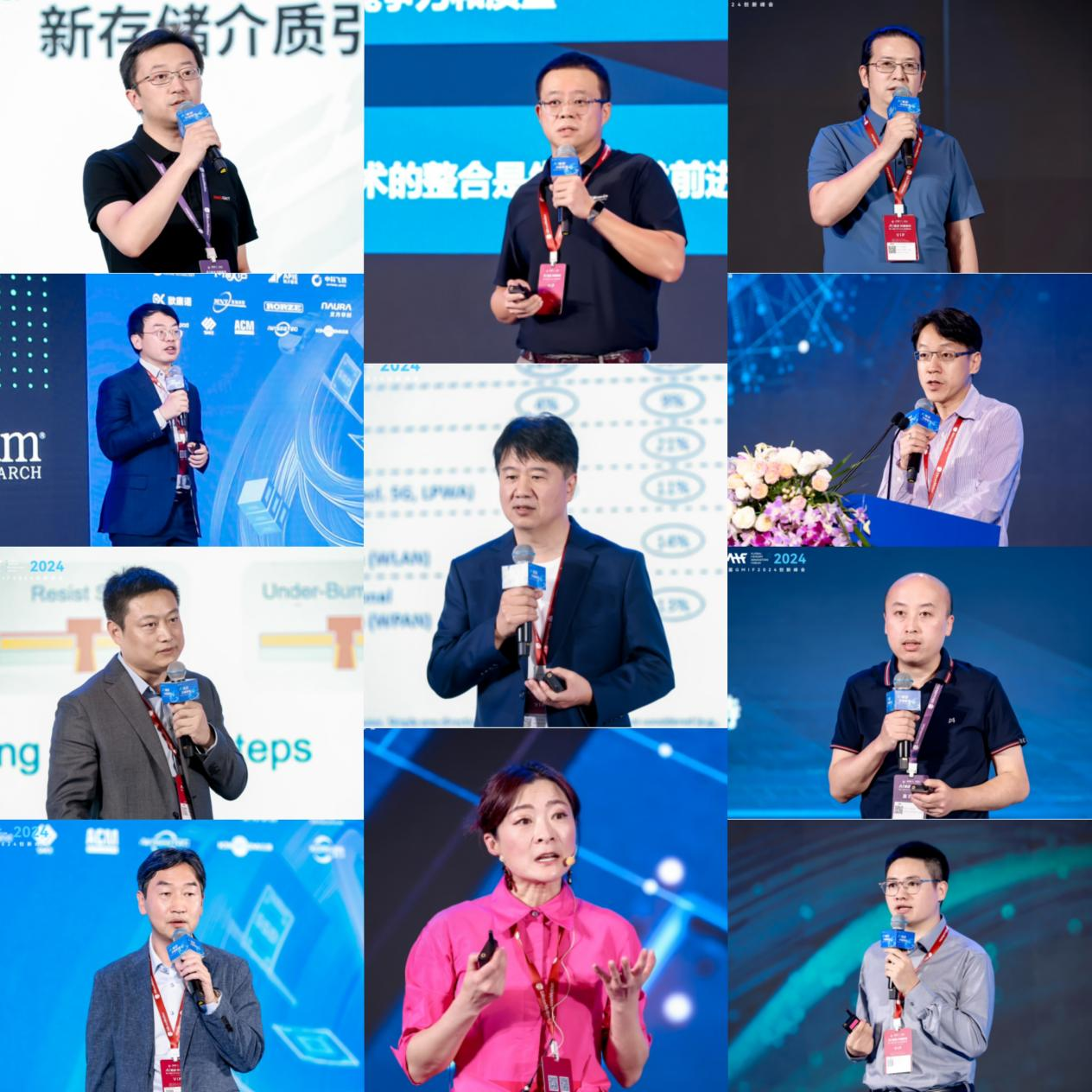
Sun Chengsi, Chairman of Biwin Storage, remarked that as the storage industry continues to evolve, the importance of the packaging and testing segment is increasing, especially as advanced packaging moves towards miniaturization and integration, raising technical barriers. The company has deepened its research and development integration of packaging and testing to enhance its competitiveness. It is expected that the R&D and packaging integration 2.0 strategy will transform the company from a storage product supplier to a comprehensive partner covering wafer-level advanced packaging services, providing industry partners with higher-quality solutions and driving comprehensive customer value enhancement.
Ding Rui, General Manager of the Consumer Platform Business Group Product Department at iFLYTEK, stated that with the development of large models, AI is gradually evolving from a 'tool' to an 'assistant,' capable of doing more generalized tasks through more natural conversations. In the future, they hope to collaborate with various industries to promote AI technology development.
Ma Jian, President of Business Development at the IoT Business Unit of Arm, noted that the wave of AI is sweeping across, with generative AI not only being applied in the cloud but also seeing astonishing deployment speeds at the edge. Storage plays a crucial role in AI computing from cloud to edge. Facing the new era of edge AI innovation, Arm is committed to advancing simultaneously in hardware, software, and ecosystems.
Chen Feng, Global Senior Vice President at Rockchip, remarked that an increasing number of industries and applications are integrating AI and IoT, making AIoT the optimal path for traditional industries to upgrade intelligently and a crucial direction for the future development of the IoT. The rapid expansion of the AIoT industry market brings opportunities for AIoT chips while also presenting more significant data transmission, storage, and computing demands, posing challenges to chip computing power. Rockchip continues to introduce chips to support AIoT applications.
Chen Jie, Co-founder and Vice President of Data Storage Technology at InnoGrit, stated that in the AI era, the data age poses greater challenges to storage technology, and faster and more efficient SSD interfaces will help break through storage bottlenecks. The collaborative optimization of InnoGrit's main control chips and domestic flash memory particles will enhance the read-write performance and QOS competitiveness of storage products, jointly shaping the future of Chinese storage.
Huang Zhiwei, Vice President of Quanxing Technology, noted that Quanxing's computing architecture is not limited by large model sizes, significantly reducing the cost of local deployment. The company focuses on domestic high-end storage products across the board, driving AI to complete the final mile and striving to become a leader in the era of universal AI.
Qiu Zheng, Technical Marketing Manager at Montage Technology, remarked that the rapid development of AI has created enormous demands for computing and storage capabilities. High-speed and stable data transmission between high-performance processors and high-capacity memory is crucial, giving rise to the need for shipping chips.
Hu Dongming, Vice President of Marketing at Allwinner Technology, shared insights into the company's industrial layout, technical direction, and industry applications, introducing Allwinner's explorations in general-purpose computing power, dedicated computing power, computing power expansion, and multi-modal perception, as well as how it leverages computing power as a foundation to provide high-quality chips and services for industries such as smart living, smart cities, and smart industries.
Hu Lei, Commercial Director of the Heterogeneous Integration Business Unit at AMAT, conducted a detailed analysis of DRAM chips, logic controllers, HBM stacks, and other technologies in high-bandwidth memory, as well as incremental material engineering steps. He also noted that the company leverages its strong R&D capabilities to advance high-bandwidth memory technology and provide customers with advanced packaging equipment, empowering them to enhance their value.
A senior director from LAM Research noted that the AI chip market is booming, and its performance needs to be empowered by advanced packaging. Advanced packaging and heterogeneous integration are primary pathways for the semiconductor industry to optimize performance, power, form factor, and cost.
YOUNGSUK KIM, Director at DISCO, stated that from 2023 to 2029, the advanced packaging market will grow at a compound rate of 11%, making 2.5/3D packaging equipment increasingly important. DISCO boasts rich experience in mass production and close cooperation with customers during the R&D phase, enabling it to provide HBM and 2.5D-PKG thinning and dicing solutions. He then introduced the performance and advantages of equipment such as DFD6860HS, DGP8761HC, DGP8761, DFL7262, DFL7362, and DFD6362/6363.
Addressing Cutting-Edge Industry Technologies and Forging a New Autonomous and Controllable Ecosystem
The summit also dedicated a special session to the Memory Industry Chain Ecosystem Forum, inviting companies such as Zhongke Feice, Loongson Technology, LEC Automation, MicroNanoTech (Hong Kong), Euroconn Electronics, MWE, Touchmind Intelligence, Taitan Test, Lianyun Technology, Silicon Mitsubishi, Heyan Technology, and other industry chain enterprises to gather and share insights on cutting-edge trends, industry pain points, and solutions related to wafer inspection, storage packaging, burn-in testing, product and technology innovation, terminal applications, yield improvement, and cost reduction.
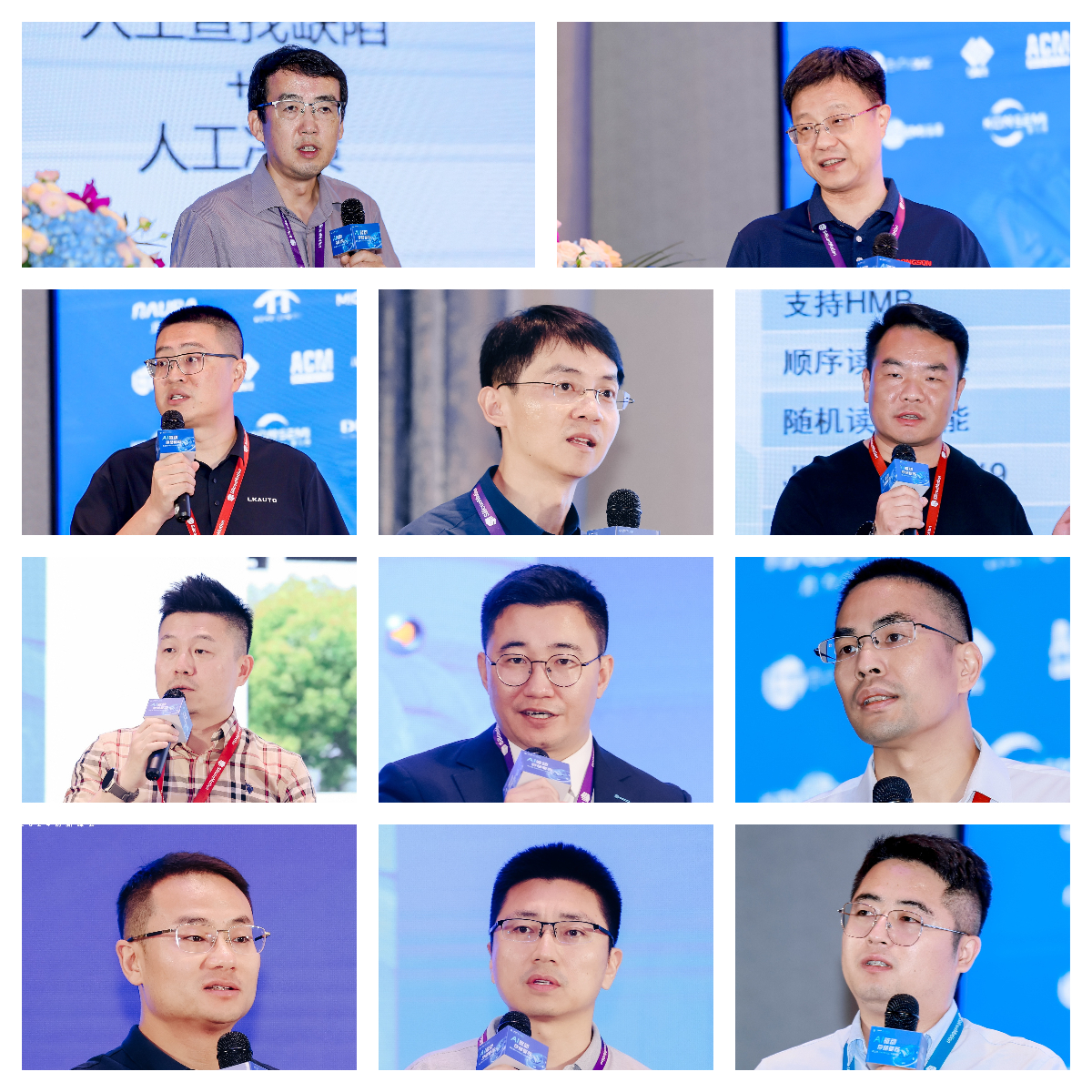
Zhang Song, Executive Vice President of Zhongke Feice, remarked that using AI decision-making to enable machines to find defects has become an industry trend, enabling customers to truly identify defects and improve production yield and efficiency. In practical applications, our system is more accurate and faster than manual inspection, significantly enhancing customer productivity. In the future, the company will continue to promote AI product innovation to provide high-quality solutions for domestic customers.
Jiang Shan, General Manager of Guangdong Loongson at Loongson Technology, stated that through self-reliance and strengthening, the company has gained more innovative space for the industry and market. Autonomy brings us greater freedom, cost-effectiveness, and a more secure supply chain. As a contributor and maintainer of the international upstream community, Loongson is both autonomously controllable and internationally compatible, not detached or disconnected.
Ye Changlong, General Manager of LEC Automation, noted that the company's new generation of 2.5D/3D large-size packaging ball mounting technology is already being used in product development verification with domestic customers.
Pei Zhili, CEO of MicroNanoTech (Hong Kong), remarked that the company is a professional manufacturer of wafer thickness measurement systems, currently offering the SemDex M1 semi-automatic system and SemDex A fully automatic system equipment. With over 1,000 units installed globally, the company leads the industry.
Zhao Ming, General Manager of Suzhou Euroconn Electronics, stated that based on the GEN5 SSD testing system, they have embarked on PCIe GEN6 R&D. In today's fiercely competitive industry, it has increased internal driving force, strengthened R&D capabilities and product innovation, and continuously provided better solutions for customers.
Jin Kuilin, Vice President of Sales at MWE, noted that independent R&D is crucial. Through scientific research and innovation, the company aims to achieve the import substitution of key core components, break foreign technological monopolies, and ensure supply chain security.
Ouyang Xiaolong, Vice President of Touchmind Intelligence Research Institute, remarked that the company's one-stop solution enables AI Inside applications, supporting mature storage chip packaging for AI, as well as advanced storage chip packaging solutions such as HBM, 2.5D, TCB, and HB.
Xu Yonggang, CTO of Taitan Test, stated that through forward R&D, domestic manufacturing of complete machines, and in-house production line verification, they have achieved full automation and autonomy, enabling the development of solutions that better meet customer needs.
Ren Huan, Marketing Director at Lianyun Technology, noted that the company has maintained high-intensity R&D investments, with R&D expenses increasing from 155 million yuan in 2021 to 380 million yuan in 2023, effectively translating into multiple mass-produced products. Among them, shipments of the MAP1102 main control chip have exceeded 50 million units. Compared to similar products on the market, Lianyun's products lead in I/O speed and energy efficiency ratio, with profound understanding and active layout in software and hardware integration.
Silan Microelectronics' senior sales director Cao Yanqing said that in the storage industry chain, Silan Microelectronics has the advantages of efficient product integration, rich experience in cooperating with top customers, wide product coverage, secure supply chain, and global collaborative research and development. It has achieved global research and development and global service layout, truly centered on customers.
Wang Xiaoliang, the business development manager of Heyan Technology, said that the company has gone through three stages of development: basic products of 6-inch dicing saws, upgraded products of 8-inch/12-inch dicing saws, and high-end products of cutting and sorting machines/de-ringing machines. It has rich technical accumulation and industrialization experience, and can provide customers with reliable and stable consistency guarantees, support customized solutions for different processes, and provide process-related technological innovation for advanced packaging needs.
After a day of intense ideological collisions, the guests welcomed the dinner time filled with toasts and clinking glasses, and the grand GMIF 2024 Annual Awards were presented at the dinner. After fierce competition in the early stage, Intel, Micron Technology, GigaDevice, Arm, Unisoc, Liulian Intelligent, Shenghong Technology, Biwin, Solidigm, Western Digital, Rockchip, Allwinner, Microstep, Heyan Technology, Okano Electronics, Contact Intelligence, Xinrui Technology, Taitan Testing, Hemay Precision, Silicon Motion, Lianyun Technology, Quanxing Technology, Yuanwei Innovation, Kangxinwei, Silan Microelectronics, Lika Automation, Maiwei Technology, Zhongke Feice, Lezi Chip Innovation, Tuoding Electronics, IPACS, InnoGrit, JHJW, Kingspec, and many other enterprises stood out from the fierce competition and won the unanimous recognition of expert judges, winning the 2024 Annual Awards.
In short, as a feast in the global storage field, the GMIF Innovation Summit has been successfully held for three consecutive years and has gained a good reputation in the industry, becoming an influential high-end summit in the domestic storage industry. In the future, the GMIF Innovation Summit will strive for deeper market services and form innovation, create a higher-level exchange and cooperation platform, explore more influential industry events, analyze industry trends and opportunities with an international perspective, and promote win-win cooperation in the industry. See you next year!



